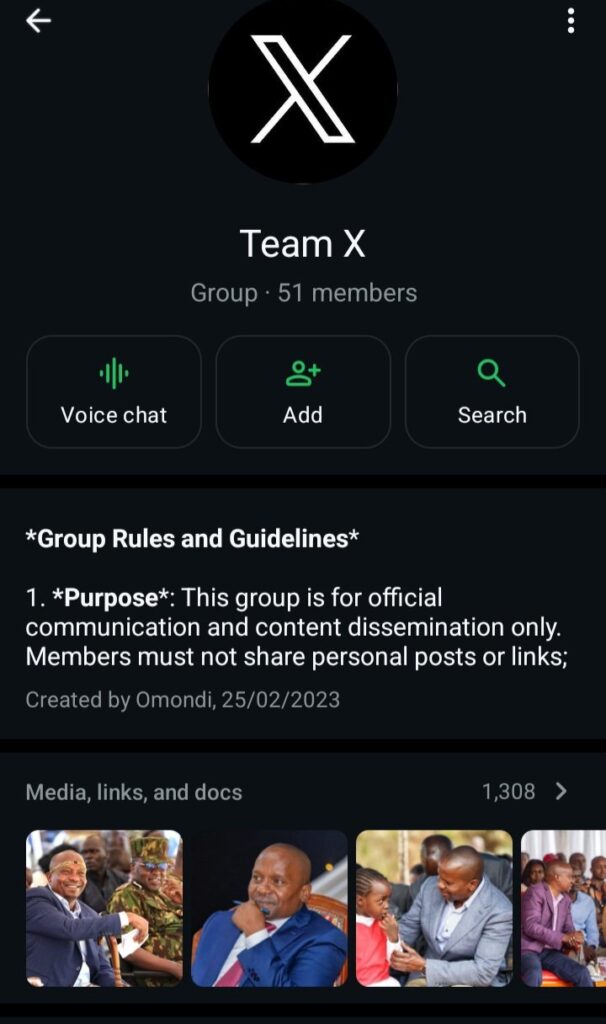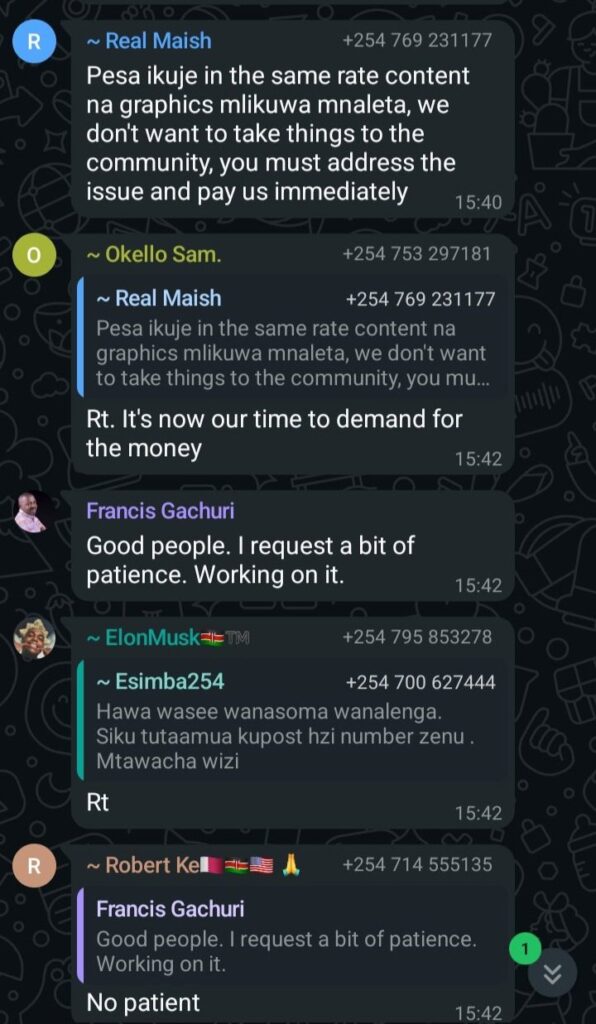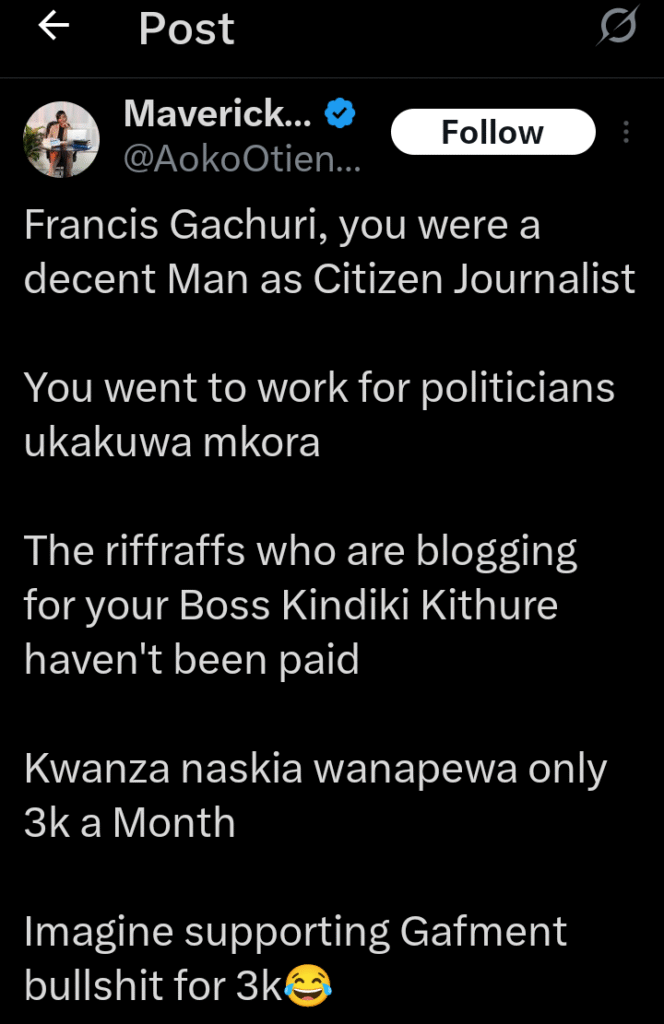Maverick Aoko, a well-known Kenyan social media personality, took to X by calling out Francis Gachuri, the former Citizen TV journalist who joined politics and became closely linked to Deputy President Kithure Kindiki.
Aoko accused Gachuri of turning corrupt and abandoning his principles the moment he joined the government. Her message wasn’t just a personal attack, she backed it up with what she said was evidence of serious exploitation going on within the political circles. She posted a screenshot of a group chat named “Team X” with 51 members, where several bloggers were seen openly complaining about not being paid.
One of them demanded that the rate of payments should match the rate at which they were producing content and graphics. Another warned that they might take the matter “to the community” if they were not paid immediately. Gachuri responded in the chat, pleading for patience, but that did not calm the bloggers down.

What really sparked anger was Aoko’s claim that the bloggers working for Kindiki’s office only earn 3,000 Kenyan Shillings a month. She ridiculed them, saying, “Imagine supporting Gafment bullshit for 3k,” mocking the fact that some people spend their time defending politicians online for such a meager amount.
The screenshot she shared showed that these bloggers were in an organized group where they were assigned tasks, posted media, and expected to promote government agendas.
Yet, they still had to beg for their dues. The whole situation painted a picture of political operatives exploiting young digital workers with promises of influence or rewards that never really come.

Francis Gachuri used to be respected in media circles. He was known for his political analysis and his role on Citizen TV’s News Gang. But after moving to the Ministry of Interior in 2023 to serve as the Director of Communication under then-Cabinet Secretary Kindiki, many started questioning his shift in loyalty. By April 2025, Kindiki had risen to the position of Deputy President, and though it’s not officially confirmed, Gachuri is believed to still be involved in Kindiki’s communications team.
Aoko’s statement hits at the heart of a growing issue in Kenya, where journalists and influencers move from being watchdogs to becoming mouthpieces of the state, often turning a blind eye to ethical issues in return for proximity to power.
Her post is just one example of how dirty the behind-the-scenes of political PR can get. It reflects a larger pattern where social media influencers are recruited to defend political figures, create propaganda, and discredit critics.
But instead of being rewarded or supported, many of these digital workers are neglected and underpaid. Earning 3,000 KES a month for constant political messaging is not just disrespectful, it’s abusive. These people are expected to be online warriors, always ready to trend hashtags and drown out dissent, yet they don’t even get enough to sustain a decent living.

The public response to Aoko’s post shows that many Kenyans are tired of the lies and the exploitation. Some supported her and echoed her frustrations, saying even good people lose their morals once they enter politics. Others reminded everyone that Gachuri wasn’t exactly neutral even when he was in the media. The silence from Gachuri and Kindiki’s team since the post went viral has only added fuel to the fire. It’s as if they are hoping the issue will die down on its own.
But Kenyans are watching, and more people are beginning to ask hard questions about who benefits from this system and who gets used.
Aoko’s post has opened up an uncomfortable conversation about how the political elite in Kenya use and discard young digital workers. It raises important questions about ethics, pay, and respect in a world where social media has become central to political influence.
Whether or not anything changes will depend on whether those being exploited find the courage to speak out just as boldly as Aoko did.





















Add Comment